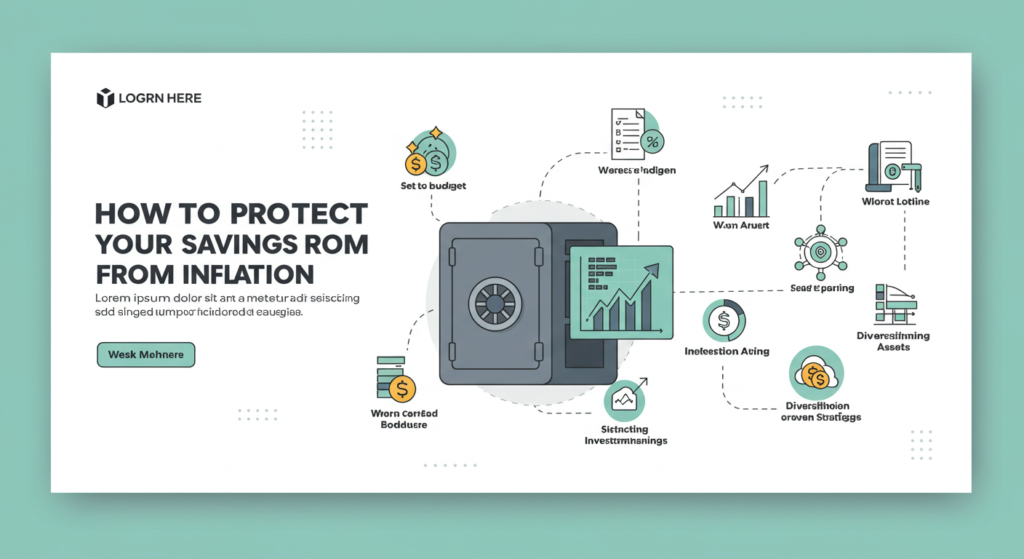How to Protect Your Savings from Inflation with These Proven Strategies

Inflation can erode the purchasing power of your hard-earned savings over time, making it essential to take proactive steps to safeguard your money. With the right strategies, you can protect your savings and ensure your financial future remains secure. Here’s how to combat inflation effectively.
What Is Inflation?
RAYO VALLECANO VS SEVILLA
Inflation is the gradual increase in the price of goods and services over time, reducing the value of money. For example, $100 today might buy fewer groceries or services in 10 years. The average annual inflation rate is around 2-3%, but it can rise higher during economic fluctuations.
Proven Strategies to Protect Your Savings from Inflation
1. Invest in Inflation-Protected Securities
Treasury Inflation-Protected Securities (TIPS):
- Issued by the U.S. government, TIPS are bonds specifically designed to counteract inflation.
- The principal value of TIPS increases with inflation, ensuring your investment retains its purchasing power.
How to Get Started:
- Purchase TIPS directly through TreasuryDirect or brokerage accounts.
2. Diversify Your Investments
Investing in a diversified portfolio can help you outpace inflation. Consider including:
- Stocks: Historically, the stock market provides returns that exceed inflation over the long term.
- Real Estate: Properties tend to appreciate over time, often keeping pace with or exceeding inflation.
- Commodities: Gold, silver, and other commodities often rise in value during periods of high inflation.
3. Invest in Real Estate
Real estate is a tangible asset that typically appreciates in value during inflationary periods. You can invest in:
- Physical properties (rental or residential).
- Real Estate Investment Trusts (REITs), which allow you to invest in property portfolios without owning physical properties.
4. Increase Exposure to Dividend-Paying Stocks
Dividend-paying stocks provide two benefits:
- Regular income through dividends.
- Potential capital appreciation as stock prices rise.
Look for companies with a history of increasing dividends, as these often outpace inflation.
5. Open a High-Yield Savings Account or CD
- High-Yield Savings Accounts: Earn higher interest rates than traditional savings accounts, helping to combat inflation.
- Certificates of Deposit (CDs): Lock in a fixed interest rate for a specific term to shield savings from inflation.
6. Invest in Index Funds and ETFs
Index funds and exchange-traded funds (ETFs) provide low-cost access to diversified portfolios. Options like S&P 500 index funds often deliver returns that exceed inflation over time.
7. Consider Cryptocurrencies
While more volatile, cryptocurrencies like Bitcoin have been viewed as a hedge against inflation. Ensure you understand the risks before allocating funds to this asset class.
8. Cut Back on Non-Essential Spending
Reducing unnecessary expenses can free up more money to invest in inflation-protected assets. Track your spending and prioritize saving for investments.
9. Build an Emergency Fund
An emergency fund protects you during economic downturns, reducing the need to dip into long-term savings. Ensure your fund is in a high-yield savings account to minimize inflation’s impact.
10. Keep Learning and Stay Informed
Staying updated on economic trends and financial strategies will help you make informed decisions. Follow financial news and consider consulting with a financial advisor.
How Inflation Impacts Savings
- Reduced Purchasing Power: Money saved without earning interest loses value over time.
- Lower Real Returns: If your savings grow at a rate lower than inflation, your real returns are negative.
Final Thoughts
Protecting your savings from inflation requires proactive planning and diversification. By investing in inflation-resistant assets, maintaining a balanced portfolio, and staying financially informed, you can preserve your wealth and achieve your long-term financial goals. Start today to ensure your savings work harder for you.
FAQs
1. What are the best assets to hedge against inflation? Stocks, real estate, TIPS, and commodities like gold are excellent options for hedging against inflation.
2. How much of my portfolio should be in inflation-protected assets? The allocation depends on your financial goals, risk tolerance, and time horizon. Consult a financial advisor for personalized advice.
3. Is cryptocurrency a reliable hedge against inflation? Cryptocurrencies like Bitcoin can be a hedge but come with high volatility. Invest cautiously and diversify.
4. How does inflation affect retirees? Inflation reduces the purchasing power of fixed incomes, making it essential for retirees to include inflation-protected investments in their portfolios.
Leave a Reply